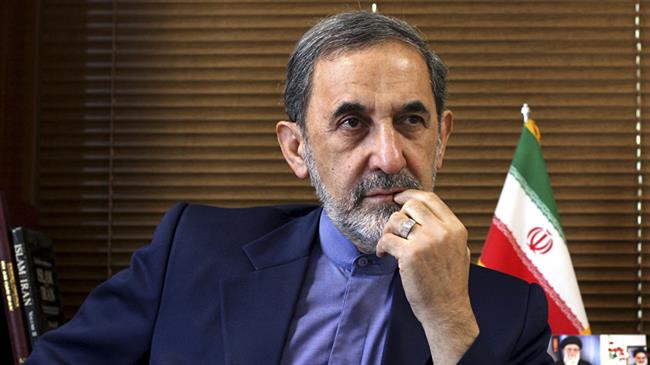

A senior Iranian official has said that constant cooperation among Iran, Iraq and Syria will not allow the US to wield influence in Kurdish regions.
According to the Iraqi local TV network al-Beladi, Ali Akbar Velayati, a senior advisor to Leader of the Islamic Revolution Ayatollah Seyyed Ali Khamenei, made the remarks at a meeting with Iraqi Foreign Minister Ibrahim al-Jaafari in Baghdad on Friday.
Velayati described the US as the major problem in the Middle East, noting that the Islamic Republic keeps a close watch on all the political, military and security measures of the US in the region.
The Iranian official pointed to US Secretary of State Rex Tillerson’s ongoing visit to the Middle East, saying the regional tour takes place in the wake of Washington’s failures in different military and political spheres against Islamic countries.
Tillerson started his tour of Egypt, Jordan, Turkey, Lebanon and Kuwait on Sunday, but a key US ally, Israel, is conspicuously absent from his itinerary.
The most contentious part of Tillerson’s trip was in Turkey, where anti-American sentiment is rising, with some officials in Ankara calling the United States an enemy of Turkey.
Turkey has long criticized Washington’s support for militants from the Kurdish People’s Protection Units (YPG) in northern Syria near the Turkish border, as it views the group as a terrorist organization and an extension of the outlawed Kurdistan Workers Party (PKK) that has been fighting for an autonomous region inside Turkey since 1984.

The US is leading a coalition which has been conducting airstrikes against what are said to be Daesh targets inside Syria since September 2014 without any authorization from the Damascus government or a UN mandate. The military alliance has repeatedly been accused of targeting and killing civilians. It has also been largely incapable of fulfilling its declared aim of destroying Daesh.
US officials claim that the YPG is the most effective fighting force against the Daesh terrorist group in northern Syria, and have substantially increased their weaponry and technology support for the terrorist group.
Ankara and Washington agree to work together in their occupation of Syria, where the two NATO allies have been on a collision course over the US’s support for the Kurdish militants.
The Syrian government has given a degree of authority to the Kurdish regions to run their own affairs in the face of foreign-backed militancy. The US, however, has used the vacuum to establish a foothold in those regions with the help of militants.
Damascus has on several occasions called for US troops to leave Syria now that the fight against Daesh is over.








